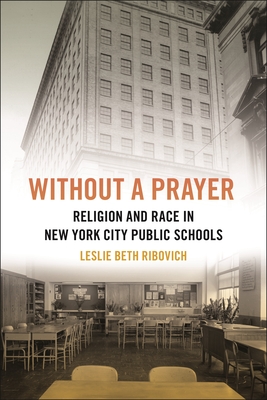Without a Prayer: Religion and Race in New York City Public Schools

Without a Prayer: Religion and Race in New York City Public Schools
Reframes religion's role in twentieth-century American public education
The processes of secularization and desegregation were among the two most radical transformations of the American public school system in all its history. Many regard the 1962 and 1963 US Supreme Court rulings against school prayer and Bible-reading as the end of religion in public schools. Likewise, the 1954 Brown v. Board of Education case is seen as the dawn of school racial equality. Yet, these two major twentieth-century American educational movements are often perceived as having no bearing on one another. Without a Prayer redefines secularization and desegregation as intrinsically linked. Using New York City as a window into a national story, the volume argues that these rulings failed to successfully remove religion from public schools, because it was worked into the foundation of the public education structure, especially how public schools treated race and moral formation. Moreover, even public schools that were not legally segregated nonetheless remained racially segregated in part because public schools rooted moral lessons in an invented tradition--Judeo-Christianity--and in whiteness. The book illuminates how both secularization and desegregation took the form of inculcating students into white Christian norms as part of their project of shaping them into citizens. Schools and religious and civic constituents worked together to promote programs such as juvenile delinquency prevention, moral and spiritual values curricula, and racial integration advocacy. At the same time, religiously and racially diverse community members drew on, resisted, and reimagined public school morality. Drawing on research from a number of archival repositories, newspaper and legal databases, and visual and material culture, Without a Prayer shows how religion and racial discrimination were woven into the very fabric of public schools, continuing to inform public education's everyday practices even after the Supreme Court rulings.PRP: 294.50 Lei
Acesta este Prețul Recomandat de Producător. Prețul de vânzare al produsului este afișat mai jos.
265.05Lei
265.05Lei
294.50 LeiLivrare in 2-4 saptamani
Descrierea produsului
Reframes religion's role in twentieth-century American public education
The processes of secularization and desegregation were among the two most radical transformations of the American public school system in all its history. Many regard the 1962 and 1963 US Supreme Court rulings against school prayer and Bible-reading as the end of religion in public schools. Likewise, the 1954 Brown v. Board of Education case is seen as the dawn of school racial equality. Yet, these two major twentieth-century American educational movements are often perceived as having no bearing on one another. Without a Prayer redefines secularization and desegregation as intrinsically linked. Using New York City as a window into a national story, the volume argues that these rulings failed to successfully remove religion from public schools, because it was worked into the foundation of the public education structure, especially how public schools treated race and moral formation. Moreover, even public schools that were not legally segregated nonetheless remained racially segregated in part because public schools rooted moral lessons in an invented tradition--Judeo-Christianity--and in whiteness. The book illuminates how both secularization and desegregation took the form of inculcating students into white Christian norms as part of their project of shaping them into citizens. Schools and religious and civic constituents worked together to promote programs such as juvenile delinquency prevention, moral and spiritual values curricula, and racial integration advocacy. At the same time, religiously and racially diverse community members drew on, resisted, and reimagined public school morality. Drawing on research from a number of archival repositories, newspaper and legal databases, and visual and material culture, Without a Prayer shows how religion and racial discrimination were woven into the very fabric of public schools, continuing to inform public education's everyday practices even after the Supreme Court rulings.Detaliile produsului









